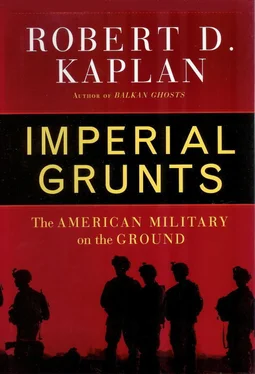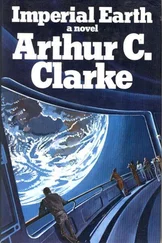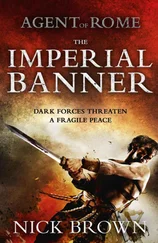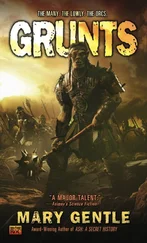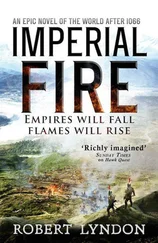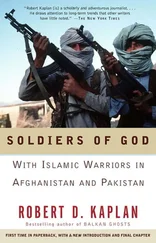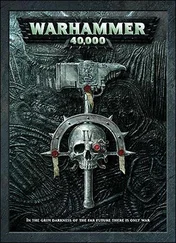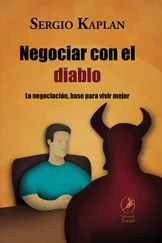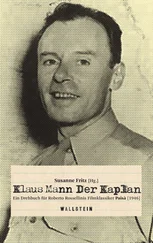The members of this A-team hailed from Georgia, South Carolina, Arizona, New Jersey, the Dominican Republic, and Puerto Rico, with several from Ohio. All spoke Spanish. Sgt. First Class Ivan Castro, putting on a pair of shorts, gave me his life story without prompting. “Yeah, my family is from Puerto Rico. I was born in Hoboken, New Jersey, St. Mary’s Hospital. My wife is a speech pathologist. When I go back to Puerto Rico to visit my relatives I like it for a day or so, then I hate it. I can’t wait to leave. All the dirt and crime,” he said, looking down in a self-reflective way at his tattoos.
Sgt. Castro was a “bravo,” that is, a weapons specialist. A-teams were usually commanded by a captain, with the rest of the detachment all noncommissioned officers, either sergeants or chief warrant officers, each with an occupational specialty. “Charlie” meant the engineer, “delta” the medic, “echo” the communications expert, and “foxtrot” the intelligence officer. Between the commanding captain and the noncoms was an “18 Zulu,” the operations or team sergeant, who held the rank of master sergeant. He was the heart and soul of the detachment.
Capt. Murray’s 18 Zulu was Master Sgt. Mike Fields of Akron, Ohio. Fields, a stocky guy of average height, with close-cropped red hair verging early on gray, was terse and self-contained. He seemed hard to get to know, and he was. As soon as everyone had showered and changed, he conducted a briefing about “deconflicting the range issue.” He ran through a detailed accounting of eighteen thousand rounds of ammo in addition to blasting caps. Then he outlined the problem: the team needed three rifle ranges for the next day’s training of Colombian troops, but only one range was available, so he had decided that communications training, which didn’t require a range, would be held alongside rifle training. “That way,” Fields said, “we don’t have people wasting time, loitering.” Capt. Murray smiled throughout. The fact that his team sergeant seemed to be the real leader of this A-team was an obvious truth that Murray was not only comfortable with but proud of.
Murray, the ambitious working-class African-American from Queens, was an officer, an aristocrat of sorts, who handled the bilateral relations with his Colombian counterparts at the Tolemaida base. Each member of ODA-781 trained the Colombians on his own occupational specialty: weapons, intelligence, demolition, and so forth. They all reported to Fields. It was in Colombia where I began to see that the genius of the American military was less technological than social, a reflection of American society whose telling feature was the relative absence of class envy. Chris Murray hadn’t been completely satisfied as a noncommissioned officer, so he went to Officer Candidate School. Mike Fields, on the other hand, seemed born to his job as a noncom. As I evaluated more A-teams in Colombia, I continually saw master sergeants with affection for their captains, and captains who positively idolized their team sergeants. American democracy spawned rich and poor, but the basis for its revolutionary dynamism was the great middle. The American military was the clearest example of that. As I would see in my travels, few militaries in history had produced such impressive middle ranks.
Rather than dine on MREs in the barracks, a bunch of us piled into Capt. Murray’s armored car and drove out of the base into the nearby town of Tolemaida. On a ratty sidewalk stall I had one of the best steaks in my life. Salsa music blasted a few feet from us. Here was a simulacrum of pleasure after a twelve-hour training day. Under a scrap iron shed lit by fluorescent lights, in sour heat and humidity, sweating Colombian girls, their shoulders and bellies exposed, squeezed between the tables and chairs serving us the steaks and fries. Disco lights jumped inside a nearby dance hall. A motorcycle roared by with a family of four on it. A little girl with braids played with a doll a few feet from me, separated by a locked iron grille at the bottom of a flight of stairs.
“Let’s go,” said Lt. Col. Christie quietly. “It’s GBNT [Green Beret nap time].” It was only 9 p.m. when we settled the bill; I was the only one who had ordered a beer. Back at the barracks, it being “Mefloquine Monday,” everyone took their weekly malaria pill before going to sleep.
———
The day began at 5:45 a.m. with a five-mile run followed by weight lifting. By 9 a.m. the heat and humidity were unbearable. Duke and I spent much of the day on a series of firing ranges—shadeless except for a few thorn and cashew trees—with Master Sgt. Mike Fields and Sgt. Ivan Castro, each of whom had a detachment of Colombian soldiers to work with.
The Colombian anti-guerrilla commandos under training were hardened volunteers; it would have been a waste of time and resources for Green Berets to train draftees. These Colombians were short, extremely muscular, very dark complexioned, and flat featured. Some were black. They bore the blood of slaves and indigenous Indians, unlike the tall and light-skinned inhabitants of Bogotá’s fashionable Zona Rosa. Colombia’s wealthy could buy their way out of the military, and in any case did not consider the military a path of social advancement. America’s all-volunteer military appeared more typical of the society it was supposed to defend, though it really wasn’t. Discount the exceptions. In fact, SOUTHCOM had few Jews, and the only soldiers from the Northeast were working-class African-Americans, ethnic Puerto Ricans, and Dominicans. [16] According to The Economist, “The harder-jawed a region, the likelier it is to put its young into the army. The generally Republican, pro-gun south contributes a lot more soldiers than the Democratic north-east, both in absolute numbers and percentages of the regional population. A Texan is eight times more likely to be in uniform than a New Yorker.” Mar. 22, 2003, p. 28.
Despite the heat Sgts. Fields and Castro were in full kit, loaded down with weapons, magazines, flares, Chemlites, map cases, and other survival items, as though out on a mission. They looked movie-quality impressive, and that was the point. Because the military at ground level is a world of practice and technique, not of theory, the techniques of the trainers would be accepted only if the trainers themselves looked, acted, and performed the part perfectly.
Carving up the bull’s-eye from 100 meters away with an M-4 to prove the benefits of adjusting (zeroing) one’s scope, or repeatedly changing magazines in under three seconds, might seem like showing off. But if you couldn’t prove your expertise with an assault rifle, no one would trust your advice about weaponry. The world of the military is not like the world of social science, in which one can be an academic superstar without having a day’s experience inside the crucible of government, with its humbling crises. In the high testosterone world of the military, teaching demands proof on a daily basis that you are the best. Adolescent it may be, but at least it is honest.
Ivan Castro was a former drill instructor, and it showed. He paced back and forth in full kit in the pulverizing sun, towering above his Colombian protégés, who were kneeling beside hills made by leaf-cutter ants. Castro’s subject was how to sit in a “360-degree cigar formation” while on reconnaissance, in order to rest in the field without being surprised by the enemy. “How do you sit and rest on recon?” he asked didactically in choppy Puerto Rican Spanish. “You take your hats off to listen. You don’t talk to the guy next to you. If you talk to anyone, it is to God. You lean against your pack, but you don’t nap. Each of you has a field of fire that together covers 360. Practice your SOPs [standard operating procedures], especially your hand signals. And remember SLLS [Smell. Look. Listen. Silence].”
Читать дальше
